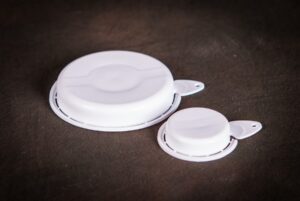——————————————
Download a copy of this alert >
——————————————
 Relieving style steel drums are recommended for use with ignitable liquids (Flammable and Combustible liquids). Steel drums are safe and reliable containers when paired with an adequately designed foam-water fire sprinkler system and relieving style plugs or drum closures. Fusible or relieving plugs are designed to relieve internal pressure during a fire situation so that a violent rupture does not occur. The use of fusible plugs also allows steel drums to be stacked and shipped four high maximizing warehouse space.
Relieving style steel drums are recommended for use with ignitable liquids (Flammable and Combustible liquids). Steel drums are safe and reliable containers when paired with an adequately designed foam-water fire sprinkler system and relieving style plugs or drum closures. Fusible or relieving plugs are designed to relieve internal pressure during a fire situation so that a violent rupture does not occur. The use of fusible plugs also allows steel drums to be stacked and shipped four high maximizing warehouse space.
“Fusible” plugs are drum closures similar to steel closures but made from impact-resistant nylon, polyethylene or polypropylene. Steel drums closed with plugs also meet UN/DOT requirements for tight-head steel drums, type 1A1, and open-head steel drums, type 1A2. Occasionally, some fillers and users of steel drums may avoid using fusible plugs due to concerns with penetration of UV light through the plugs. Users often apply a secondary cap or crimp on types of plastic seal after the drum closure is installed. These types of secondary seals can provide additional protection against the transmission of UV light. Most drum closure manufacturers also offer these over caps as well as fusible plugs in various colors. This pigmentation can also aid in reducing UV light transmission. Many materials used to manufacture plugs have UV additives which assists in the UV resistance of natural and pigmented closures. These UV additives are capable of providing many years of UV resistance in extreme outdoor UV conditions.
Only plastic overcaps should be used with fusible plugs when packaging ignitable liquids to ensure the drum will vent during fire situations. It is recommended that users evaluate the suitability of the caps and plugs with their product prior to use to ensure good compatibility. In addition, the use of an over cap also provides another layer of security for your product.
Issued 07/2020
The information above is intended to provide interpretative and authoritative information as a service to our members and has been offered in good faith, based on the information provided to us. We do not guarantee the accuracy or completeness of any such interpretation or information.

